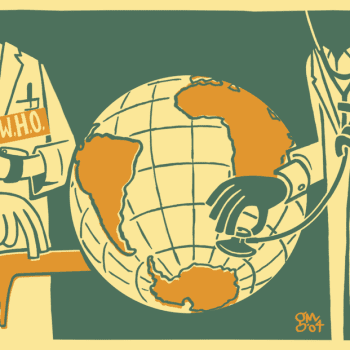Earlier this year, Chinese scientists caused an international furor when they reported that they had taken 86 human embryos and attempted to modify the gene that causes β-thalassaemia, a blood disorder that is potentially fatal.
It was the first time edits had been confirmed to have been done on reproductive cells and the news caused deep divisions within the scientific community. Some expressed optimism and hope that such research could eventually lead to the eradication of genetic diseases from the face of the Earth. Others were horrified — warning that genetically modifying humans is unsafe and could have devastating consequences on future generations of our race that no one can foresee.
Now another group of scientists — this time from Britain — is seeking permission to conduct similar experiments, raising the stakes for the technology.
Kathy Niakan, a stem-cell researcher at the Francis Crick Institute in London, has told the country’s regulators that her work will focus on trying to understand what genes are at play during the first few days after fertilization, according to a report in the Guardian. She would switch genes off and on to study how the modifications impacted the development of the cells that form the placenta.
“The knowledge we acquire will be very important for understanding how a healthy human embryo develops, and this will inform our understanding of the causes of miscarriage,” Niakan explained.
The embryos would come from donations from couples who had undergone IVF treatment and would only be used for basic research. It would be illegal for them to be implanted in a woman and allowed to grow more than two weeks. . . .
The reaction from others in the scientific community, however, was one of alarm.
“This proposal is a troubling and provocative move,” said Marcy Darnovsky, executive director of the Center for Genetics and Society. “Modifying the genes of human embryos is deeply controversial because it can be used for worthwhile research on the one hand, or to produce genetically modified human beings on the other. A global public conversation about preventing such misuses is just getting underway, and this proposal could short-circuit those deliberations.” . . .
Debate about so-called germline editing of eggs, sperm and embryos has been going on for decades, but it has come to a head in recent years with the development of a powerful new gene-editing technology called Crispr-Cas9 that can make extremely precise edits to DNA and which was used by the Chinese team and would be used by the British team.












